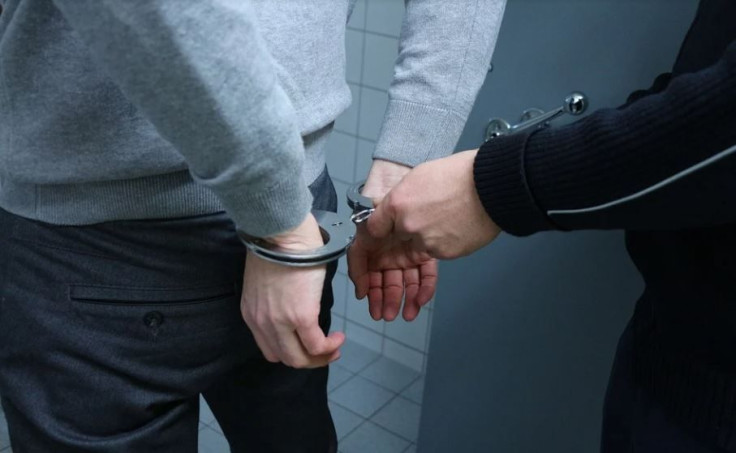
As a press conference came to a close in a busy hotel lobby on February 19th, Colombian law enforcement agents surrounded Geovanny Andrés Rojas, arresting him under an Interpol Red Notice for drug trafficking.
Rojas, known better by his alias 'Araña', or spider, had been engaging in peace talks with the government on behalf of the Comandos de Frontera, a dissident armed group of the now-defunct FARC guerrillas.
Araña's arrest has had far-reaching consequences, undermining peace negotiations between armed groups and the state and stirring conflict between branches of Colombia's government.
But the case, and plans to send Araña to be tried in the U.S., also reignited a decades-old controversy over extradition.
Why is extradition a sensitive subject in Colombia?
While Colombia has extradition treaties with many countries, its agreement with Washington has particularly traumatic connotations due to links with cartel violence in the 1980s and 1990s.
Concretely, Colombian criminals suspected of drug trafficking could be tried and imprisoned in the U.S. as part of an extradition treaty that came into effect in 1982.
Top cartel bosses, including Pablo Escobar, responded by forming an organization called "los extraditables" which presided over a domestic terror campaign. Their infamous motto was, "we prefer a grave in Colombia to a prison in the United States."
The group unleashed a wave of violence over the following years, kidnapping and murdering public figures and civilians, including the 1989 bombing of Avianca Flight 203, which killed over 100 people.
In 1991, the government outlawed extraditions, but resumed them in 1997. Since then, Colombia has regularly sent drug traffickers to the U.S. to be tried and jailed.
Subsequent extraditions have also caused controversy. Notably, in 2008 President Álvaro Uribe sent 14 top paramilitary leaders to the United States on drug trafficking charges.
Because they were tried in the U.S., the commanders, who oversaw massacres of civilians and other human rights violations, were only tried for drug-related crimes.
Sergio Guzmán, Director at Colombia Risk Analysis, a security think tank, explained the perceived injustice in Colombia over these extraditions.
"People who got tried in U.S. courts for paramilitarism or narco-trafficking... have never answered to Colombian judges and Colombian courts for their crimes," he said.
Moreover, many of them received reduced sentences for cooperating with the U.S. government.
What role does extradition play in the peace process?
With Araña's arrest, extradition is back in the spotlight in Colombia. Politicians, civil society organizations, and the High Commissioner for Peace, Otty Patiño, have decried plans to send him to the U.S.
They fear that extraditing a guerrilla leader who voluntarily partook in peace negotiations will dissuade other rebel leaders from engaging in talks.
"Extradition is a soft spot for the negotiations because it greatly undermines trust between the parties," Andrés Preciado, Director of Conflict and Security at the Ideas for Peace Foundation, a Colombian think tank, told The Latin Times.
Preciado explained that the arrest damaged negotiations with other groups by creating "fear" among those in discussions with the government.
The analyst also warned that the case threatens President Gustavo Petro's 'total peace' plan – a policy which aimed to give the government broader scope to negotiate with armed groups.
"I think [extradition] is proving to be an obstacle to total peace and the case of Araña shows it. The government did not have much to do with [the arrest] but it has generated many problems for them," said Preciado.
He also noted that the arrest will have logistical implications, with active rebels unlikely to travel to the capital Bogotá to engage in talks.
How important is the Araña case?
While the Araña case has damaged negotiations between the government and armed groups, there are other, bigger threats to achieving peace, according to Guzmán.
"We're talking about Araña today, but six months ago it was a different guy with a different name," the analyst said.
He criticized the Araña case for being an example of the "kingpin strategy" which focuses on figureheads rather than root causes of conflict.
"We're not necessarily following through on some of these very important topics that get sort of brushed aside in Colombia," Guzmán added.
Following renewed conflict this year and deteriorating security situations in multiple regions, there is increasing doubt over Petro's ability to wage peace.
"In general the government has few mechanisms to pressure [armed groups]," said Preciado.
He referred to the state's failure to apply military pressure in key conflict areas like the southwestern Nariño and Cauca departments, where armed groups have launched fatal attacks on soldiers in recent weeks.
Many fear the government does not have the firepower necessary to fight the guerrillas, weakening its position at the negotiating table.
While the Araña case has dredged up old debates over extradition, it appears the Petro government has bigger problems on its plate.
© 2025 Latin Times. All rights reserved. Do not reproduce without permission.




